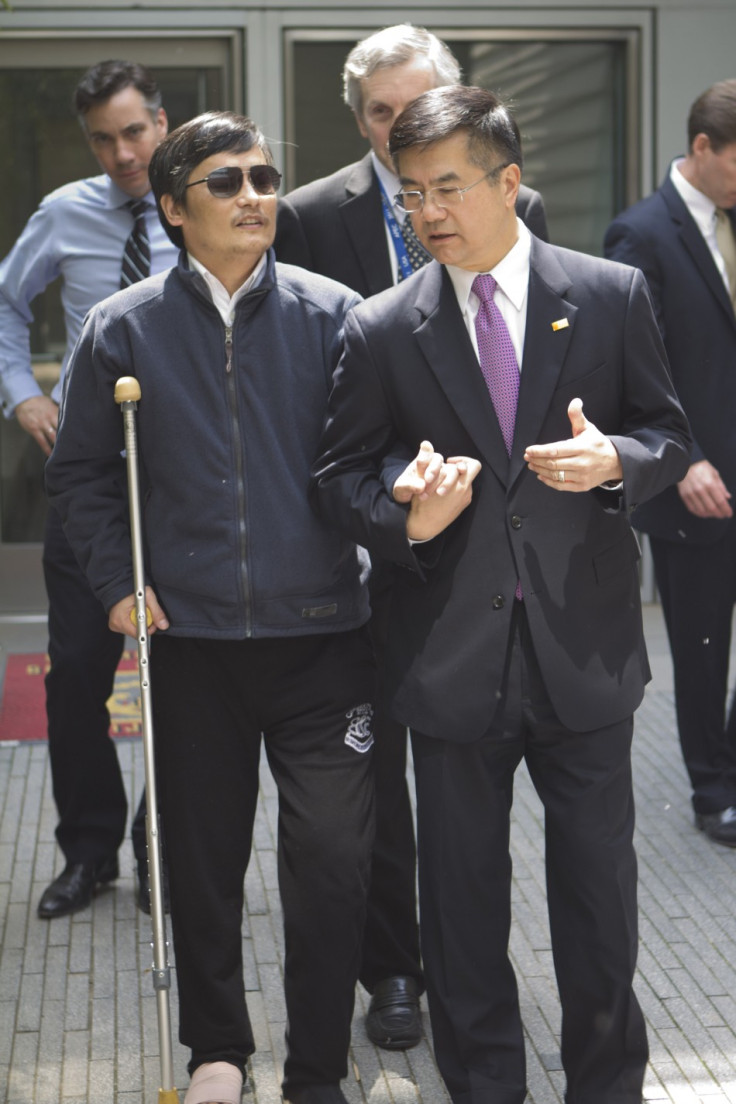Chen Guangcheng: US Cannot Give Political Asylum To Chen While He Is In China, Expert Says

Kenneth Lieberthal, Director of the John L. Thornton China Center and a senior fellow in foreign policy at the Brookings Institution, says blind Chinese dissident Chen Guangcheng cannot be granted political asylum by the United States while he remains in China.
"Mr. Chen is now reportedly asking for the U.S. to grant him political asylum. He may not understand that it is not possible. First, the U.S. never grants political asylum to a citizen who is still inside his home country. We [the U.S.] don't have the power to do that," Lieberthal said.
The former top aide to President Bill Clinton says the U.S. can only grant political asylum to someone who is outside of his or her home country and asks for asylum. As a result, it will not be possible to give refuge to Chen while he is still in China.
In an exclusive interview to this reporter, Lieberthal said: "Secondly, we have no right at all, legally, to extend protection to Mr Chen in China. All we can do is, if he is there physically in an embassy or consulate grounds, Chinese authorities cannot enter those grounds without our permission, and so, effectively, you can give him refuge there for whatever period of time you choose.
"That may become a diplomatic problem, but legally, once someone is on your grounds, the host government has no right to go and get them."
The blind activist was in the U.S. embassy in China for nearly a week before he was taken to a hospital for medical treatment. Chen fled house arrest before being sheltered in the embassy.
Lieberthal added: "When they are not on your grounds, you have no legal right whatsoever to extend any kind of protection to the citizen remaining in the country, and that is the situation here. So I don't know how this will play out. What he [Chen] is asking for is not possible legally."
When the former top diplomat was asked whether this human rights issue will change the relationship between the U.S. and China, he said it was hard to predict at this stage.
"Well, it's hard to tell. I hope not. Any particular individual case is always complicated. Because individual personalities and individual emotions can become serious matters.
"We see here [that] Mr. Chen got the agreement that he sought, getting his family out of his town, getting assurances of their safety, being allowed to go to the law school, which has facilities for the blind, that is near Beijing, and being allowed to stay in the country.
"He got all of that, walked out of the U.S. embassy within several hours, and was convinced by his friends to repudiate the deal that has been done," Lieberthal added.
The former diplomat said this kind of individual emotional development cannot be predicted and complicates the matter a great deal for the United States as well as for the Chinese negotiators who agreed to this deal. It also makes Chen's future unclear, Liberthal said.
He says both the U.S. and the Chinese side must be disappointed by the outcome of the incident since both thought they had reached an agreement.
For the full interview transcript Click here.
© Copyright IBTimes 2025. All rights reserved.




















